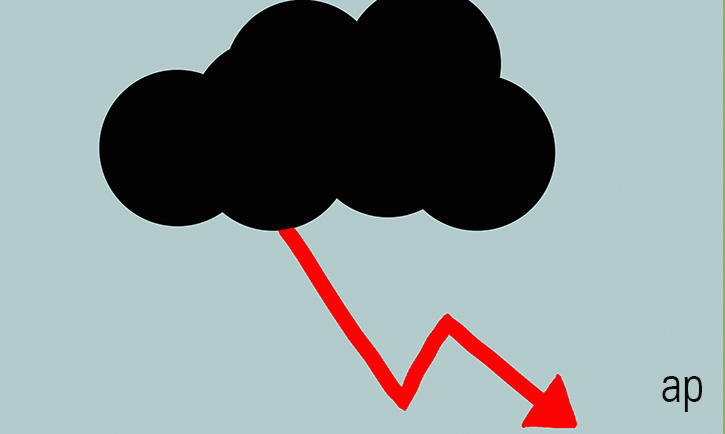
Insurance is one of life’s necessities that people grudgingly pay for, and investors usually don’t get too excited about the sector, except as an income play.
But since the coronavirus outbreak, the industry has been anything but dull: Admiral is repaying £100 million to car insurance customers during lockdown, specialist insurer Hiscox (HSX) is the subject of a legal battle over its coronavirus coverage, while Lloyd’s of London has warned that the Covid-19 bill could cost insurers $200 billion.
General insurers such as Direct Line have seen a steep fall in burglary and car accident claims as people stayed at home, but the industry has been deluged by claims, from cancelled events to income protection and, inevitably, life insurance.
Before the crisis, insurers and banks were lumped together as safe and dependable dividend payers. Now banks have been forced to freeze dividends by the regulator, which is also keeping a close eye on the insurance sector. When considering any dividend payouts, the Prudential Regulation Authority said insurers should “pay close attention to the need to protect policyholders”. The Financial Conduct Authority has also weighed in, asking insurance firms to offer customers lower premiums, refunds or deferred payments.
Of the four UK insurers covered by Morningstar analysts, Aviva (AV.) and Direct Line (DLG) have suspended dividends for this year, and Admiral (ADM) has suspended its special dividend but kept its ordinary payout. Prudential (PRU) did not announce any changes to its divided policy in full-year results on May 14.
Dividend Uncertainty
Uncertainty over dividends and the coronavirus sell-off have weighed on these companies’ share prices this year. This has left three out of four of these names undervalued: Direct Line is rated as four stars by Morningstar analysts, as is Prudential, while Aviva is rated five stars, which means it is significantly undervalued. But none are assigned economic moats because analysts think there is too much competition in the sector – this is good for consumers, but not for companies.
“We don't think insurers benefit from competitively advantaged positions and it is difficult to achieve a moat in insurance. Competition is fierce and products are essentially commodities,” says analyst Henry Heathfield.
But some investors remain positive on the sector. UK equity income manager Clive Beagles, who manages the Silver-rated JOHCM UK Equity Income fund likes Phoenix (PHNX), which yields nearly 8%, as does Simon Prior, manager of the four-star rated Merian Corporate Bond fund. Earlier this month, Phoenix affirmed its intention to pay its 2019 dividend and to generate nearly £1 billion in cash this financial year. Chairman Nicholas Lyons said: "The board recognises that dividends are an important income stream for retail savers and the funds they invest in.” This goes against the grain of recent announcements by a range of other FTSE 100 companies that have cut or suspended dividends this year. Beagles says the near 8% yield “absolutely stands out as unusual given we think it’s a very low risk [company]”.
Looking to Asia
While insurance may not be a growth sector in developed markets, the increasing wealth of emerging economies means it is elsewhere. Prudential has the highest exposure to Asian growth and Morningstar’s Heathfield describes the company’s Asian business as the “jewel in the crown” for the group.
Asia is a fertile hunting ground for insurance investors, not just from an economic growth perspective. Teera Chanpongsang, manager of the Bronze-rated Fidelity Asia fund, says that unlike in the west, where we may have reached saturation point for insurance, the current take-up of life and health policies in China and India remains very low. While Covid-19 may be a headwind for insurers' profits this year, he argues that the Covid-19 crisis could prove to be an important pivot point in attitudes towards life insurance in particular. He has recently topped up his holdings in China Life (601628) and India’s HDFC Life (540777).
While the lack of dividends may put many investors off the sector in the short-term, the long-term challenges can’t be discounted either. Merian’s Prior thinks that while UK insurers entered the crisis in a strong capital position, a prolonged downturn would take its toll on the industry. One of the knock-on effects of this is that cash-strapped consumers will cancel all but non-essential policies such as car and home insurance – and in the case of car insurance, go for the legal minimum of cover.
Under-pressure companies, meanwhile, may scale back their employee life insurance cover or scrap it entirely, Prior says. Still, with more people claiming this year because of the coronavirus, insurance companies will inevitably claw this back through higher premiums in the future, he says. From a financial point of view, these companies are in a strong position to survive this crisis - Prior says they have "come into this in the best shape they’ve ever been, so they will be able to withstand it”.




























